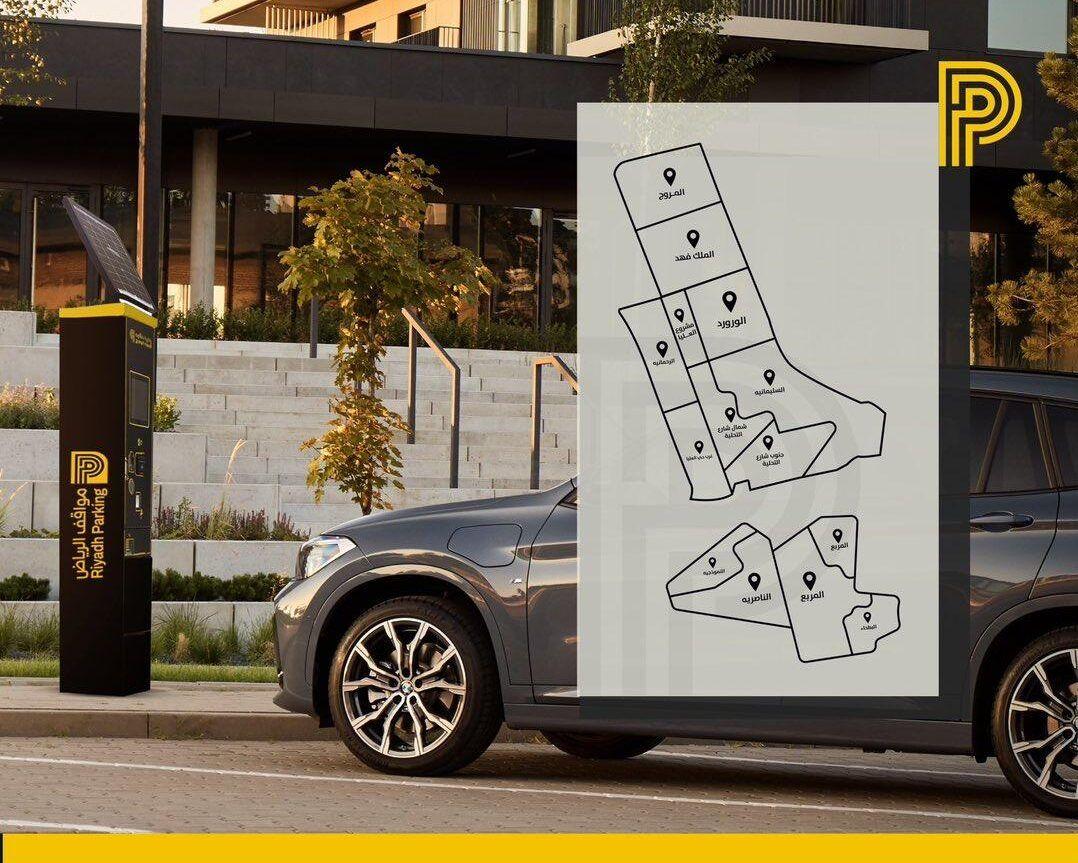Riyadh parking
The “Riyadh Parking” Project is one of the strategic initiatives launched by Riyadh Municipality as part of its efforts to improve quality of life and regulate traffic flow in the capital. The first phase was officially launched on August 25, 2024.
The project aims to manage and regulate more than 24,000 paid parking spaces in commercial streets, along with over 140,000 free parking spaces allocated for residents in residential neighborhoods to protect their rights. The first phase covers 12 key districts in the city, including Al-Wurud, Al-Rahmaniyah, Al-Muruj, Al-Sulaimaniyah, and King Fahd.
Implemented through a public-private partnership, the project is managed by Remat Riyadh in cooperation with solutions by STC and a global partner, under a 10-year contract. It leverages modern technologies such as solar-powered electronic payment machines, smart guidance signboards, and a digital application that allows users to pay and issue permits. Paid parking areas also offer a 15-minute free grace period.
The project’s objectives are to reduce random parking, improve mobility within the city, and support commercial activities. In addition, it contributes to advancing smart city initiatives and strengthening infrastructure by reinvesting the project’s financial returns.
Goals
Managing and regulating parking in the capital through more than 24,000 paid spaces and 140,000 free spaces allocated for residents.
Protecting residents’ rights in residential neighborhoods by designating free parking for them.
Reducing random parking and organizing traffic flow in commercial and vital streets.
Improving mobility within the city through smart solutions and fair distribution of parking spaces.
Supporting commercial activities by providing an organized parking environment that boosts economic movement.
Advancing smart city initiatives through solar-powered electronic payment machines, smart guidance signboards, and a digital application for permits and payments.
Developing infrastructure and reinvesting the project’s financial returns into sustainable development.
Establishing public-private partnerships to ensure the project’s sustainability over a 10-year period.
Customer segments
